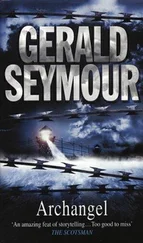And after that — what was the point of describing what she’d seen and heard and done? Searching for something her family could bear to hear, she mentioned that the excellent French she’d learned in high school had finally been put to use when, after the start of the Picardy offensive, she was sent to a French hospital near Beauvais and found, scattered among the French soldiers, wounded doughboys who couldn’t communicate with the French doctors and nurses treating them. Couldn’t explain that the weights and pulleys holding a shattered leg in traction needed adjustment; longed to write their wives and couldn’t ask for paper; hated liver but found it on their trays. They’d been glad to have her interpret for them and to fix what she could.
She had not even tried, though, to describe the insane rapidity with which her duties had been transformed. One day she was writing a letter for a soldier with no hands and the next a French nurse she often saw near the operating room had pulled her over and asked her to hold some sandbags around a poilu ’s shoulder while he was being X-rayed. The nurse mentioned that she had taken Marie Curie’s training course for manipulatrices nine months earlier and been practicing ever since, and Eudora in a few words described the machines she’d worked on in the basement of Tamarack State Sanatorium. Briefly, as if appraising a wound, the nurse had looked away from her task and at Eudora’s face. Two days later, she began teaching Eudora the difficult, interesting techniques of localization.
A bullet might enter in one place, she learned, but end up in another, after being deflected by a bone. Shrapnel might tunnel this way or that and might, on an X-ray image, seem to be lying over an organ it actually lay under. Fragments of a shattered bone might move like arrows, puncturing viscera or piercing organs which might leak or bleed, undiscovered, were they not able to calculate accurate trajectories. One day she learned something and the next was left to do it alone, which was exactly what she couldn’t explain to anyone back home. Out here she saw it happen all the time, to nurses and soldiers and doctors and drivers and engineers alike; no one did what they’d been trained to do, they did what needed doing. She learned more in six weeks than she had in six months of concerted practice at home.
In late May, during the German spring offensive, she was transferred to Auteuil, where she worked surrounded by American doctors and nurses in long white tents spread in rows over the grounds of the racecourse. Orderlies did nurses’ work, recuperating soldiers did orderlies’ work, nurses acted as anesthesiologists. Wearing rubber boots and a white kerchief over her dirty hair, she changed bandages for two days before an exhausted surgeon heard her say something about her training and promptly moved her into the X-ray room to help the medic struggling with the new equipment. The tube stand broke; she fixed it. She calibrated the tube, loaded the holders, mixed developing chemicals, set up the darkroom efficiently. The medic had trouble using the Hirtz compass to localize projectiles; she taught him how to set the legs correctly. The surgeon, reviewing films with her, said her instinct for sensing how bullets and pieces of shrapnel split after they entered a man’s body, and for exposing their peculiar paths, was frightening. Then he invited her to work with him full-time.
All summer, as the wounded men poured into the white tents, she’d continued to work in the X-ray room. Paris wasn’t far but she never left the racecourse. She wrote home very seldom, ignored the letters she received, and when she wasn’t working either slept or prepared for the next full train. In July she heard that American troops had been assigned to North Russia as part of an Allied intervention; in August, that a small Red Cross unit had left New York on a merchant steamer, carrying food and medicine and other supplies for those troops. Those seemed like pointless facts until September, when she was sent from Paris to London to Newcastle-on-Tyne, where she boarded one of the four ships that at midnight, under a new moon, had floated silently down the river and into the North Sea. As neither the Army nor the Red Cross had roentgenologists to spare, the surgeon at Auteuil had volunteered her.
So that was her preposterous story, which she’d given up trying to explain. No one at home could understand but here almost everyone had lived through something similar, including Boyd. Nothing in his story had been unfamiliar, if the details differed they were only the details; the contradictions and reversals all rang true. Why, then, had she been so insensitive to him?

ALL THROUGH THE next day she wrote up a report on a new way to chart the location of projectiles, which she’d developed in France and which Dr. Hirschberg, who’d found it useful, wanted to submit to the Army. He came in several times to check on her but she said nothing to him about Private Boyd’s problems, knowing the time wasn’t right. At the end of the day she let him leave the building alone, so he wouldn’t feel that she was pestering him, and fifteen minutes later she walked by herself to the convalescent hospital. The sky was dark, the moon was hidden by heavy low clouds, and the air was damp and smelled of smoke and garbage. Soon it would start to snow again. People bundled in long dark coats, their faces hidden by hats and scarves, converged in thin columns on the hospital’s front door. She joined the back of one column and moved toward the recreation room, where an elderly British professor was giving the fourth of a series of lectures on Russian literature. For a month now this had been her chief distraction: such a relief, to hear someone talk about anything other than the war.
On her way in she stopped to say hello to several soldiers; most of those who’d been operated on and stabilized at the receiving hospital ended up here for a while. Dr. Hirschberg, who’d arrived before her, waved and gestured her over and so she sat at his table, facing the river, in a dark green armchair stained with chocolate and smelling of the horrible cigarettes the British supply officer doled out to the men. The movie screen at the front of the hall was blank; the stage, which most recently had hosted a vaudeville entertainment during which one Viola Grottinetskoff had danced in tights, was now bare except for a small wooden podium. Dr. Hirschberg said, “I’m looking forward to this, aren’t you?”
“I am,” she said. The gray cardigan he wore every day was neatly buttoned but covered with small spots, and there were specks of skin caught in his heavy dark eyebrows. “I do every week.”
“I’ve been reading Turgenev in French, since the last talk,” the doctor said. “I’ve forgotten — do you read French?”
“Quite well,” she said. Although he relied on her films to guide his incisions, she was not sure, sometimes, if he remembered her name. But he was a fine surgeon, calm in the face of the worst surprises, and she was happy to work with him.
“I’m glad you had some quiet time this afternoon,” he said. “If it stays like this, maybe we’ll try to send your report off later this week.”
“It’s nice to be catching up,” she said. “But I did see one patient I’d like to tell you about.”
While the room filled up around them, officers and secretaries and headquarters staff trickling in by twos and threes, she related what she’d learned so far about Boyd. His appearance, half-frozen, with Havlicek’s body; his request for an examination; what she’d observed with the fluoroscope. “It’s clearly cadaver bone,” she said. “And the wound’s becoming infected. If you were to operate …”
Читать дальше













